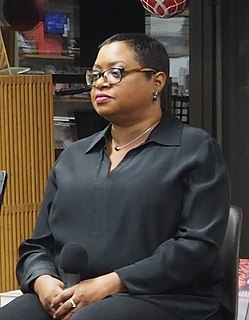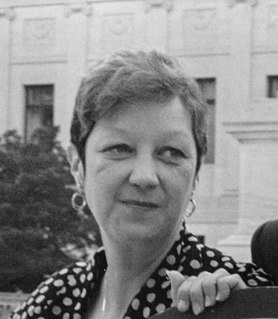A Quote by Cormac McCarthy
She said that these were things all women knew yet seldom spoke of. Lastly she said that if women were drawn to rash men it was only that in their secret hearts they knew that a man who would not kill for them was of no use at all.
Related Quotes
If women had power, what would men be but women who can't bear children? And what would women be but men who can?" "Hah!" went Tenar; and presently, with some cunning, she said, "Haven't there been queens? Weren't they women of power?" "A queen's only a she-king," said Ged. She snorted. "I mean, men give her power. They let her use their power. But it isn't hers, is it? It isn't because she's a woman that she's powerful, but despite it.
Margaret Atwood, the Canadian novelist, once asked a group of women at a university why they felt threatened by men. The women said they were afraid of being beaten, raped, or killed by men. She then asked a group of men why they felt threatened by women. They said they were afraid women would laugh at them.
We are truth-speakers, we men of Gondor. We boast seldom, and then perform, or die in the attempt. "Not if I found it on the highway would I take it," I said. Even if I were such a man as to desire this thing, and even though I knew not clearly what this thing was when I spoke, still I should take those words as a vow, and be held by them.
She said she knew we were safe with you, and always would be, because once, when she asked you to, you'd given up the thing you most wanted." Archer received this strange communication in silence. His eyes remained unseeingly fixed on the thronged sunlit square below the window. At length he said in a low voice: "She never asked me.
When I looked at [Fannie Lou] Hamer and that speech it seemed to me that she had to be the bravest woman ever, to come before that body and to assert her rights, when she knew that she was going lose that battle. But she did it anyway, because she knew she was speaking not just for herself and for that day, but for me, and for all the other young women who were coming behind her. She didn't know our names, but she was working for us. I find that incredibly empowering.
She'd always known he loved her, it had been the one certainty above all others that had never changed, but she had never said the words aloud and she had never meant them quite this way before. She had said it to him, and she hardly knew what she had meant. They were terrifying words, words to encompass a world.
People said things they didn't mean all the time. Everybody else in the world seemed able to factor it in. But not Lena. Why did she believe the things people said? Why did she cling to them so literally? Why did she think she knew people when she clearly didn't? Why did she imagine that the world didn't change, when it did? Maybe she didn't change. She believed what people said and she stayed the same." (Lena, 211)
I did not go to the Supreme Court on behalf of a class of women. I wasn't pursuing any legal remedy to my unwanted pregnancy. I did not go to the federal courts for relief. I went to Sarah Weddington asking her if she knew how I could obtain an abortion. She and Linda Coffey said they didn't know where to get one. They lied to me just like I lied to them. Sarah already had an abortion. She knew where to get one. Sarah and Linda were just looking for somebody, anybody, to further their own agenda. I was their willing dupe. For this, I will forever be ashamed.
It was ironic, but when you scratched the surface, most successful men were working for one thing only--to retire--and the sooner the better. Whereas women were the complete opposite. She had never heard a woman say she was working so she could retire to a desert island or to live on a boat. It was probably, she thought, because most women didn't think they deserved to do nothing.
Hillary Clinton said that her childhood dream was to be an Olympic athlete. But she was not athletic enough. She said she wanted to be an astronaut, but at the time they didn't take women. She said she wanted to go into medicine, but hospitals made her woozy. Should she be telling people this story? I mean she's basically saying she wants to be president because she can't do anything else.




































